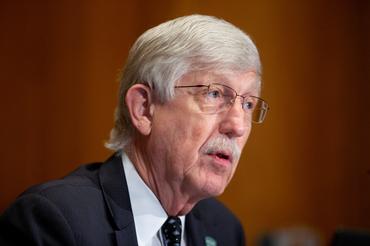NIH launches two trials to test blood thinners in Covid-19 patients
NIH launches two trials to test blood thinners in COVID-19 patients
(Reuters) – The National Institutes of Health (NIH) said on Thursday it has launched two of the three late-stage clinical trials to test the effectiveness and safety of different types of blood thinners in treating COVID-19 among adults.
The three trials are being run under the U.S. government’s Operation Warp Speed program, which aims to speed up the development, manufacturing and distribution of vaccines, tests and drugs against the coronavirus.
Blood clotting throughout the body is one of the many life-threatening effects of the respiratory illness and can lead to other complications such as heart attack, stroke and obstruction of blood vessels in lungs, the agency said in a statement here
“There is currently no standard of care for anticoagulation in hospitalized COVID-19 patients, and there is a desperate need for clinical evidence to guide practice”, said NIH Director Francis Collins.
The agency has already begun separate trials testing blood thinners in hospitalized COVID-19 patients and those with COVID-19 who have not been admitted to a hospital.

FILE PHOTO: Dr Francis Collins, Director of the National Institutes of Health, gives an opening statement during a Senate Health, Education, Labor and Pensions Committee hearing to discuss about vaccines and protecting public health during the coronavirus disease (COVID-19) pandemic, in Washington, U.S., September 9, 2020. Michael Reynolds/Pool via REUTERS/File Photo
Those who have not been hospitalized will receive either a placebo, aspirin or a low or therapeutic dose of Bristol-Myers Squibb Co (BMY.N) and Pfizer Inc’s (PFE.N) blood thinner Eliquis.
Hospitalized patients will receive varying doses of heparin to test the safety and effectiveness of the generic blood thinner in preventing clotting events, the agency said.
A third trial to start later will focus on patients discharged after hospitalization for moderate to severe COVID-19.
Reporting by Manojna Maddipatla in Bengaluru; Editing by Krishna Chandra Eluri


